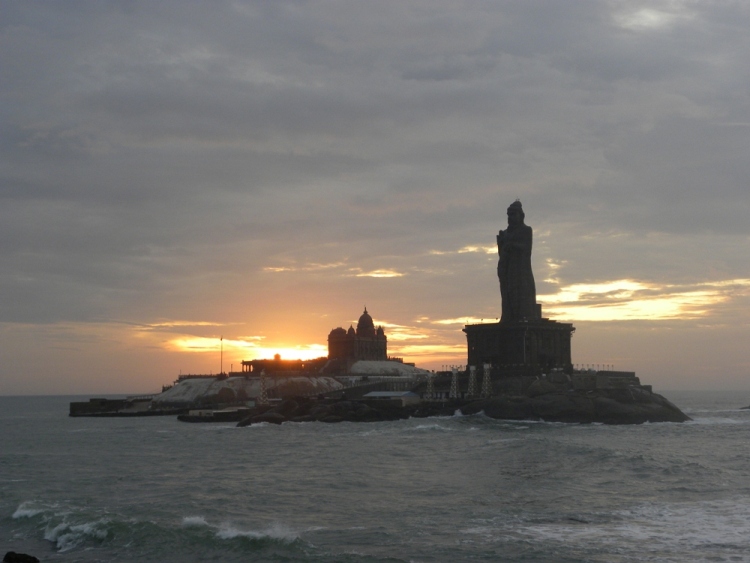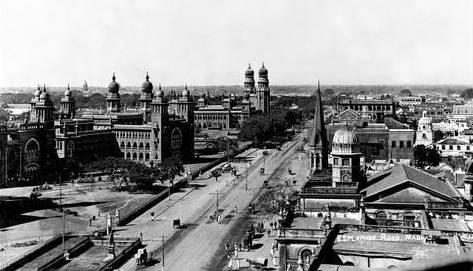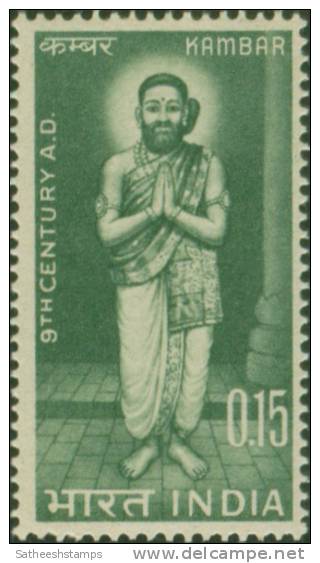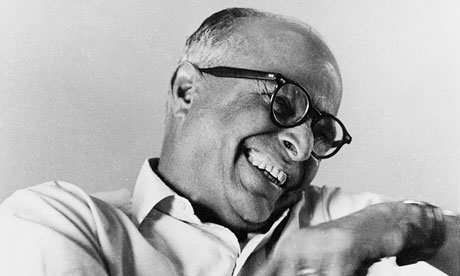
___
***Are you or someone you know in the global Tamil community doing great things? We'd love to feature them: FILL OUT THIS FORM ***
Network & collaborate with Tamil Changemakers from around the world. Request to join our private LinkedIn community here.
___
“When remembering, my burnt heart hardly lives,
What will happen if I forget?” - Kural 1207 by Tiruvalluvar (trans. P.S. Sundaram)
The specter of exile was one that weighed heavily on the ancient Hebrews as they found themselves captives, forcibly moved from their ancestral lands, with the ascent of the Babylonian empire in the sixth century B.C.E. The sadness is expressed beautifully in the forlorn lyrics:
By the rivers of Babylon, there we sat down,
Yea, we wept when we remembered Zion.
We hung our harps upon the willows in the midst thereof
For there they that carried us away captive required of us a song,
They that wasted us, required of us mirth, saying
“Sing us one of the songs of Zion!”
How can we sing a song of the LORD in a strange land?1
It was indeed during this time the Greek word Diaspora or “the Dispersion” was first coined; initially to describe the state of Jewish émigrés, then later to describe all groups of people who find themselves as minorities in far-flung locales around the world.
There is rarely anything dearer than language to gird identity, and reinforce communal ties. Forgetting it has been synonymous with losing one's very own soul and sunder a past that is bejeweled with literary, spiritual, and cultural treasures.
My own journey of reigniting an interest in Tamil came during different moments of my life. I was born in Madras (Chennai) in what is still the largest Tamil city in the world, with over 76% of its population of 4.7 million claiming it as its mother tongue according to the 2011 census. The Madras Presidency, as it was known during the time of the British Raj, played a key role from the late 1930s to the mid 1960s in opposing an universal imposition of Hindi at the expense of many local languages to which Hindi would have been as foreign as French. Tamil was thus preserved when the central government in India in 1967 instituted a policy of official bilingualism – English and Hindi – while allowing local constituencies to maintain their own language and culture. It was in this milieu that formed my parents' childhood and formative years. While only one of my grandparents was definitively Tamil – from Nagercoil in southern India – by having moved to and living in Madras, Tamil became the lingua franca of the family, having been adopted with great enthusiasm.

My early childhood years in Chennai had many fond memories, and one of my favourite recollections is one of learning the Tamil alphabet and the strict but kind teachers whose mission it was to drill this classical language into unruly kids. I'd eagerly demand the next level's Tamil textbook, issued by the Tamil Nadu state government, so that I could read through it. After having left to Brunei, and eventually to Canada, these early years allow me the precious ability to still maintain a degree of fluency in Tamil.
WATCH NEXT:
It wasn't until my teen years, in Brunei, where I first heard Tamil as it was spoken in Sri Lanka: Ilankai Tamil. It sounded lovely, and the pride and effort that went into preserving the language by the Sri Lankan Tamil community left an indelible mark on me to cherish the heritage that I had been hitherto indifferent towards.
It has been estimated that for the approximately seven thousand languages in existence today, over twelve thousand more have been permanently lost to us when the last speaker died. Of this number, only a smaller portion of the languages used a written script.

Of the classical languages of the subcontinent, Sanskrit always held an esteemed place for its places as the ancient source of culture, as well as being hailed as the mother of Indo-Germanic languages. Tamil, with the sole exception of Sanskrit, has the oldest literary records, and yet unlike Sanskrit, it is still a living language spoken by over 77 million Tamils around the world. The scholar P.S. Sundaram notes that Tamil's “continuity is such that a Tamil of today will have less difficulty in understanding the Tamil poetry of the seventh, eighth or the ninth century than an English [speaker] of today will have in understanding Beowulf or The Battle of Maldon.”
For many Tamils, particularly young adults, their knowledge of Tamil's literary heritage is often vague. I was struck by how much I personally did not know when I chanced upon an old copy of the Tamil writer R.K.Narayan's translation of Ramayana. While it is true that much of Tamil evolved from its connection with Hinduism, and the majority of Tamil speakers are Hindu, the language is not inextricably linked with religion as there are also sizeable Tamil communities that are Christian, Muslim and smaller communities that are Jain and Buddhist. The story of Rama and Sita has been called “one of the world's supreme masterpieces of storytelling,” and Narayan – the very first writer of his kind to write in English exclusively of characters in his fictional south Indian town Malgudi – derived the inspiration from the medieval Tamil poet, Kambaramanyam or Kamban for short.

Before we situate Kamban in his context among the pantheon of literary giants, let's take a brief chronological survey.
The earliest group of poetry and literature derives from what is known as the Sangam (Tamil for assembly) period, named after the early Pandyan empire in what is present-day Madurai in South India. Dating from around second century B.C.E., the most notable work being Tolkappiyam, laid the foundation and the influence of this period continues to inform even more recent works. This was followed by a fuller poetry in a narrative format called Silappadikaram and Manimekalai that consists of the well-known story of Kovalan, Kannagi and Madhavi. A series of pithy and delightful sayings, in the form of 1330 couplets, known as the Kurals are from the Tamil poet Tiruvalluvar, dating from the immediate post-Sangam period leading into the end of the first millenium of the common era. Kamban belongs to the height of the Chola empire in the twelfth century C.E. Narayan writes that Kamban's work was “[e]tched on palm leaves...running to ten thousand five hundred stanzas.” In reading his translation, we get a real sense of a stellar reworking and reappropriation of the great ancient poet Valmiki's original in Sanskrit, confirming Tamil's stature as a language of deep felicity and richness.
WATCH NEXT:
While modern Tamil poetry emerged from worldly luminaries such as Bharati in the early twentieth century, it is Sri Lankan poetry, perhaps owing to the tenuous political situation, that carry the most force in modern times. Some of the lines penned by Sivalingam, Cheran, and Sivaramani are haunting in their chronicle of despair.
So all this is well and good, but what does this mean for the average Tamil person? It is ideal to attempt to learn how to read in Tamil; while many online sites promise easy success, it is likely to be a lifelong commitment. There are plenty of great translations of Tamil poetry that have been issued by Penguin India: Tiruvalluvar's Kurals, The Rapids of a Great River: The Penguin Book of Tamil Poetry, Love Stands Alone: Selections from Tamil Poetry, and R.K. Narayan's Ramayana, and Gods, Demons and Others are great starting points. Those seeking serious study can even do graduate work at the University of Chicago, and the University of Köln in Germany.
In the spirit of going full circle, and ending with a quote by Tiruvalluvar:
“Learn well what should be learnt, and then
Live your learning.” - Kural 391 by Tiruvalluvar (trans. P.S. Sundaram)
1. Psalms 137:1-4. King James Version
**Looking to create your love story? Join the other couples who have dated and got married through myTamilDate.com!***
"myTamilDate Love Story: Jenani & Nav Found Each Other At The Right Time And Right Place In Life"
"myTamilDate.com Love Story: Tharshi & Ravi Found Love During Lockdown"
"How France Met Canada: A MyTamilDate.com Love Story"
***CLICK HERE to listen to us on Spotify!***
Related Articles:
- "The Tamil Creator Podcast (EP #52): Himalesh Kumar - American Tech Entrepreneur Overcomes Dyslexia To Sell His Company To Warren Buffet's Berkshire Hathaway"
- "The Tamil Creator Podcast (EP #51): Samanta Krishnapillai - Sparking Social Change As Founder & Executive Director of "On Canada Project"
- "The Tamil Creator Podcast (EP #50): Thad Jayaseelan - Jet-Setter, Budding Entrepreneur & Go-To Barber For Athletes & Celebrities Like Drake And Big Sean"
- "The Tamil Creator Podcast (Ep.49): DJ Kow - Trailblazing & Popular Toronto-Based Female DJ"
- "The Tamil Creator Podcast (Ep.48): Gobinthiran Kulendran - 9 Schools And 21 Location Changes During A War Couldn't Stop This Entrepreneur From Finding Success"
- "The Tamil Creator Podcast (Ep.47): Mathusha Senthil - Founder/CEO of Sex Toy Company (Thaen Pot) & Media Platform (Thaen X)"
- "The Tamil Creator Podcast (Ep.46): Ruban Kanapathippillai - Serial Tech Entrepreneur With Two Exits Collectively Over $1 Billion"
- "Tamil Innovators Spotlight: Nivatha Balendra On Surviving Cancer & Building a CleanTech Startup"
- "Separated From Family During Sri Lanka's Civil War, Ganesh Thava Overcomes Childhood Adversities To Find Success As Actor, Writer & Director"
- "Singaporean-Born, Canadian-Raised, Decolonial Racial Equity Educator Channdika Thayver Delivers Powerful TEDx Talk On Racial Equity In The Workplace"
- "Tamil Innovators Spotlight: Theban Ganesh Discusses Building a Web3 Company, Improving Healthcare Through Blockchain, Successful Exits"
- "Karthy Subramaniam Co-founded Fast Growing Sauce Company LITS as a Tribute to a Childhood Friend"
- "Elite Athlete, Coach, Future Chiropractor & Entrepreneur Abirami Shanmugaratnam Is Making Waves In The Athletic Performance Industry"
- "Toronto's OG Food Writer Suresh Doss Is Using His Reach And Voice To Help Engineer A Comeback For Beleaguered Restaurant Industry"
- "Ballet And Kung Fu Trained Australian Actress & Writer Rubi Balasingam Is Promoting Tamil Voices In Aussie TV And Film"
- "Yathusha Kulenthiran's Marketplace For Environmentally Sustainable Palmyra Products Empowers Female Artisans In Sri Lanka"
- "Australian-Tamil Entrepreneur Sujan Selven Is Creating Economic Opportunities For Remote Villages In Northeast Sri Lanka Using Upcycled Devices & Improved Connectivity"
- "Crypto Tinhorn & Former Journalist Anand Venkateswaran Talks About Buying A $69M Digital Art Piece, Collecting Stories & Catalyzing Change"

























